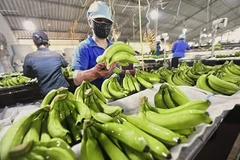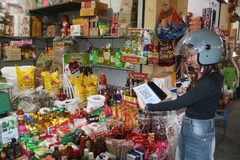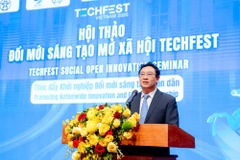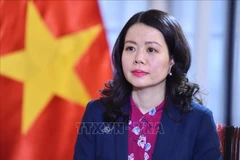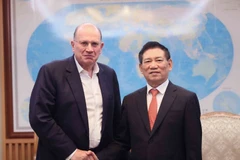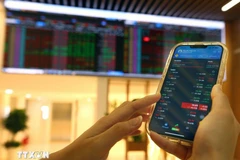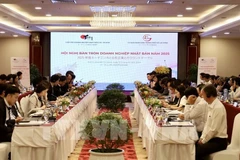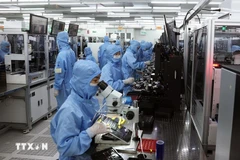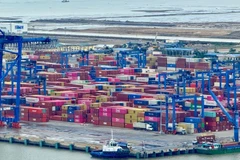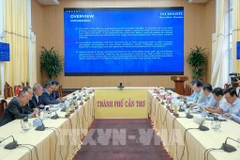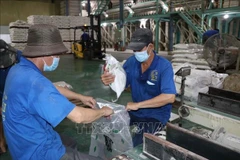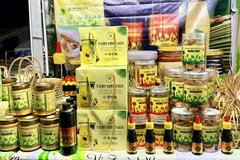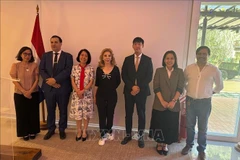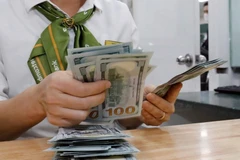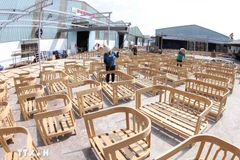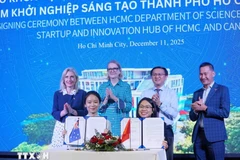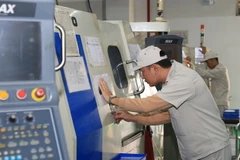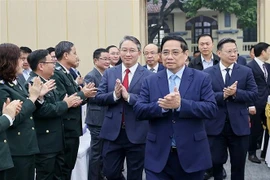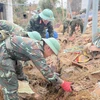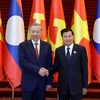"We are excited to learn frominternational partners in clean and environmental technology," Dao AnhKiet, director of the city's Natural Resources and EnvironmentDepartment, told the opening of a seminar titled "Swedish innovationcontributes clean technology globally" on November 11.
Ha MinhChau from the department's Climate Change Office said the city generatedover 40 million cubic metres of wastewater and without efficienttreatment, the waste has badly affected the quality of both surface andground water.
There was also severe air and noise pollution, hesaid, while only a small portion of the solid waste was treated, withmost of the rest being buried.
"To improve the situation, clean technology to treat environmental pollution and cope with climate change is imperative."
Harvesting rainwater was very important to improve water resources and reduce pressure on the sewerage system, he said.
PhamNgoc Hoang, director of Hoang Ha Trading – Construction – ProductionCompany, said renewable energy offered private businesses a new businessopportunity.
"Renewable energy will help mitigate problems likeburgeoning population, increasing energy use, volatility in the pricesof oil and oil products, rising fuel consumption and falling output, anduse of coal for electricity production."
Vietnam has a lot ofpotential in renewable energy. Its 3,400km of coastline is conducive forgenerating wind energy with a potential annual capacity of 500 –1,000kWh per square metre; its 1,400-3,000 hours of sunshine annuallyoffer huge solar energy possibilities; 60 million tonnes of biomass aregenerated from agricultural waste.
The country also has the potential to produce 10 billion m3 of biogas each year.
Agricultural by-products like rice husk, wood chips, straw, and urban waste were all renewable energy sources, Hoang said.
Butthe biggest challenge for the industry is the high cost of productionand technology, which is exacerbated by the difficulty in obtainingfinance.
The lack of surveys on natural resources — includingtheir measurement and evaluation – and the dependence on weather areother difficulties.
"We need assistance from the Government andinvestment from international organisations to develop the [renewableenergy] industry," he said.
At the seminar, Swedish companieslike Blab Sweden, WTM, and Urban Waters offered many solutions that havebeen successfully applied in their country to recycle water.
"Thisis a good chance for the two nations' enterprises to exchangeexperiences in research, cooperate in clean technology development, andfind sustainable ways to treat nature," Annika Rembe, director generalof the Swedish Institute, said.-VNA
